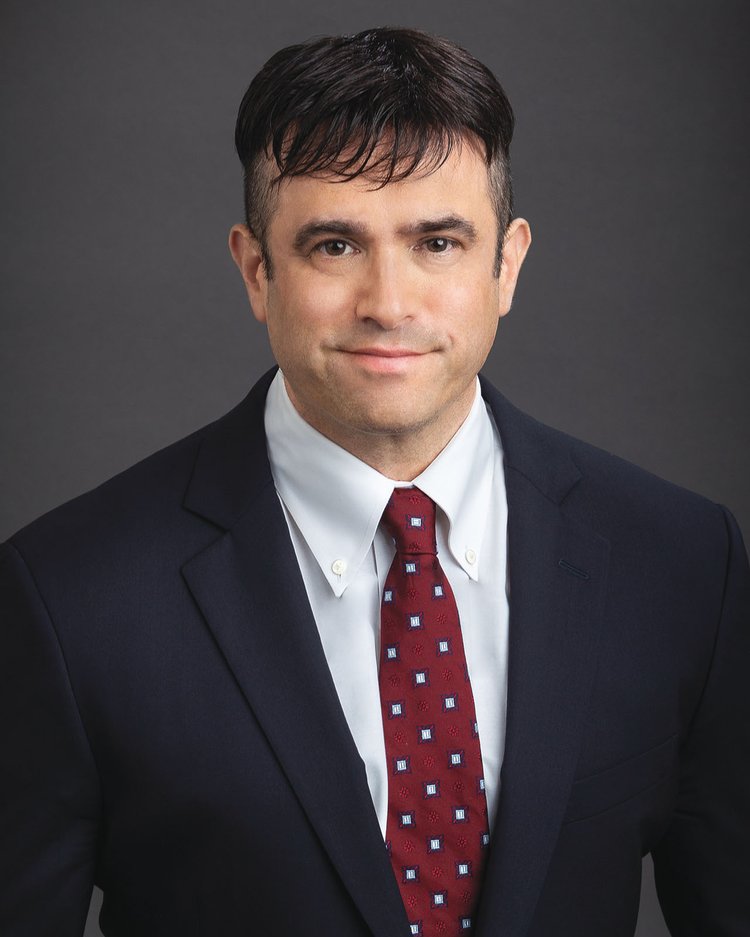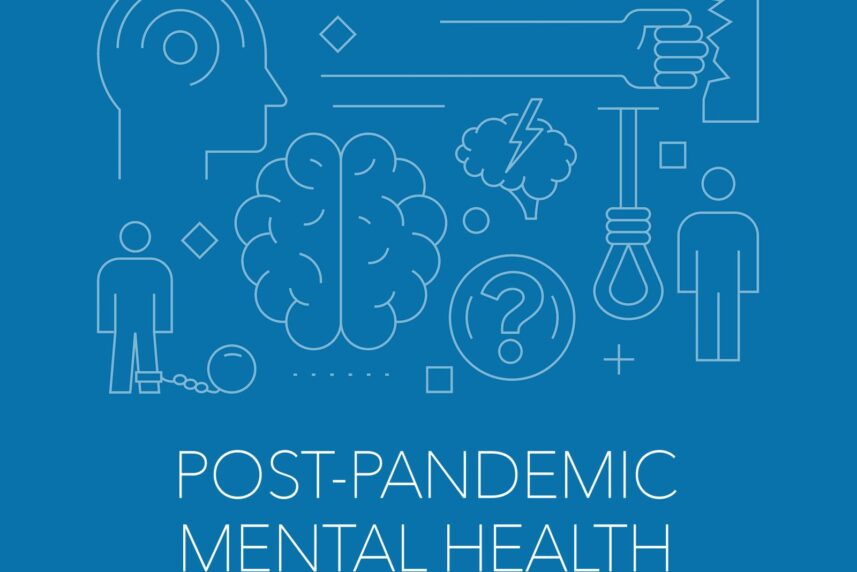Article:
How to restore and rebound as routines return to normal
As we cross into the new year, it’s healthy to set goals—from achieving physical fitness markers to making progress at work. (How about that raise?) But several years of navigating life during a pandemic has taken a toll on our mental health. Many are feeling fatigue and burnout, making it necessary to reprioritize what’s most important by putting our mental health first.
The Pandemic’s Impact
The pandemic forced people across the world to pivot and adapt to new norms at a moment’s notice. With each day seeming tentative and uncertain, many went into survival mode—abandoning predictable routines. After more than two years of living in this state of stress, the average person cannot simply flip a switch and move on. As we add processes and routines back into our daily lives and strive to feel more stable, our mental health may require extra attention and support.
“Anxiety and depression, I would say, are the absolute two biggest things that I’m seeing,” says Becky Jorgenson, a licensed clinical mental health counselor and supervisor at Mosaic Counseling Center in Cary. “Things are coming back to what we considered ‘normal.’ There’s this term that a number of people are throwing out. It’s called ‘FONO.’ Replace the fear of missing out—now it’s the fear of normal.”
How does FONO play out in our post-pandemic lives? Processes and activities we used to do with ease feel scarier, since we have been away from them for so long.
Why does it feel overwhelming or tiring to navigate things we used to do regularly pre-pandemic? “It’s re-learning everything that they’ve already learned, and that’s really, really scary,” Jorgenson says. “I see a lot of people who will say, ‘Why am I having to re-learn this? Why am I so scared of this thing that I already did all the time?’”
Jorgenson, who has experienced this feeling in her own life, adds that overcoming FONO takes time and effort, and might also require reconsidering the things you do and don’t want to return to. If you also feel this way, you’re not alone. Jorgenson says a lot of clients feel like they are the “only one” struggling, which may cause them to feel more anxiety about social engagements and, unfortunately, lead to feelings of further isolation and loneliness.
Normalize and Rebuild
“We’ve become more self-conscious of how we are seen by others,” says Kelly Harrison, a licensed clinical mental health counselor and marriage and family therapist who is also a certified eye movement desensitization and reprocessing (EMDR) therapist, and owner of RDU Counseling for Change in Raleigh. At the beginning of the pandemic, loneliness stemmed from the isolation caused by lockdowns. Now, she says it has evolved as we ask questions about our relationships such as, “Are these people really going to be there for me? How do they feel about me?” That social anxiety causes some people to retreat instead of rebuild those connections.
“Part of therapy is, we normalize their experience,” Harrison says. The pandemic was a global trauma, meaning that everyone, including therapists, were simultaneously going through some of the same things. By relating to and normalizing their experiences, Harrison was able to help her clients work through some of that trauma.
“We’ve all lost something,” Jorgenson says, adding that while many of those losses may never come back, we can support each other by empathizing with one another and validating what each of us experienced—as friends, family, neighbors and co-workers. “Validation is one of the most beautiful things we can do when someone presents their own vulnerabilities.”
Coping Strategies
Once we recognize these fears, anxieties and pains, it’s important to take care of them. During the pandemic, we all had to find ways to cope. For some people, that meant gardening or writing music, whereas others, unfortunately, turned to substance abuse or addiction to numb the pain. Replacing unhealthy coping mechanisms with positive habits and activities is part of the healing process. Members of the mental health community “are there to help them identify and process [unhealthy coping strategies] so they can find new ways of coping,” Harrison says.
Being mindful, exercising, eating healthy, getting an appropriate amount of sleep, trying diaphragmatic breathing and practicing gratitude are healthy coping strategies Harrison recommends.
“Self-care is really taking care of what’s going on on the inside of me,” she says, adding that we must ask ourselves questions like: “How do I take care of that and not just try to stuff my feelings or ignore them? What do I need?”
Solutions vary, depending on the person. Maybe it’s taking a nap or going for a long walk; having coffee with a friend or reading a good book. It might mean scheduling time for yourself or setting up an appointment with a counselor.
“A lot of women don’t take that time to care for themselves,” says Erin Bircher, a licensed mental health counselor, licensed clinical addiction specialist and owner of Foundations4Change in Cary. She observed that many people who spent all their time during the pandemic caring for the needs of others—or taking on challenges one day at a time—lost touch with pastimes that once filled them up. Bircher prompts clients by saying, “Look back 10 years, five years, a year. What are the things that you used to do that you enjoy, and do any of those things still apply?”
Megan Sumrell, a Cary-based time management expert who is the CEO and founder of The Pink Bee, was asked while at the park one day with her daughter what she did for fun and realized she didn’t know how to answer that question. Sumrell now coaches women on how to be proactive, present and purposeful. “You’ve got to carve out 15 minutes a day and, from there, work toward more of that—that time just for you. That will look very different for different people,” she says. “It doesn’t need to be booking a five-day spa trip. It’s finding time in your existing schedule when you are not in service to others, hustling or checking something off on your list.”
Finding Support
“Our mind and our body—they’re not separate. They feed off of each other” Bircher says. “We have to take care of all the different components.” If your coping strategies aren’t getting your mental health in the right place, it’s wise to seek out support. “If someone is questioning whether or not they need to find a counselor or therapist, they probably do,” Bircher says, adding that it’s important to screen a therapist to ensure he or she has the right expertise for offering the help you need. “If you don’t think it’s a good fit, you should not continue to see that person,” she says.
If you don’t have an existing relationship with a counselor or therapist, Bircher advises asking trusted friends for recommendations. Seek out someone who is licensed, and find someone who makes you feel heard and understood—not judged.

START EARLY
If your child or teenager is struggling from pandemic-related depression, anxiety or other mental health challenges, Dr. Zev Joel Zingher, MD, of Raleigh Psychiatric Associates focuses on helping younger patients make incremental improvements that result in long-term, transformative changes by helping them navigate social and academic challenges. “I’m here to help your child succeed,” he says.
Zingher’s treatments include play therapy, psychodynamic therapy, cognitive behavioral therapy, family therapy and psychopharmacologic treatments. Learn more at raleighpsych.com.
Looking for ways to promote positive thinking in your kids? Coming out of the pandemic, Taryn Crimi—a mother of four, personal development coach and owner of Chapel Hill–based Limitless Children—observed recurring themes and struggles among her clients regarding self-love, identity and finding fulfillment. These observations made her wonder: “Instead of waiting to become an adult, what if you were given these tools as a child?”
Crimi decided to create Limitless Children, an app offering mindful resources for children and parents that also includes a collection of stories designed to help children overcome negativity and feel empowered toward achieving their goals. Learn more about the app at limitlesschildren.com.


